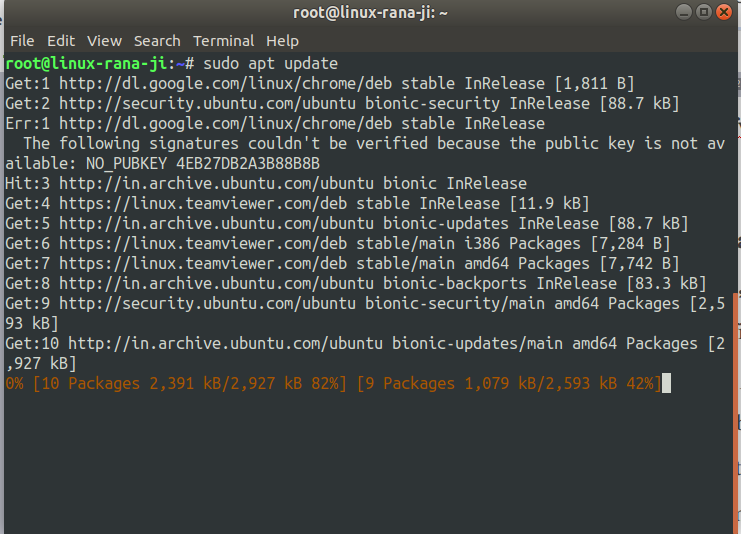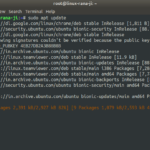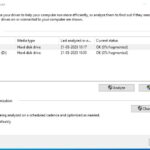Are you tired of your Linux operating system hanging or freezing at the most inopportune times? Does it feel like every time you try to get some serious work done, your computer decides to take a break? Well, you’re not alone. The Linux operating system is known for its stability and reliability, but even the best systems can encounter hanging problems. The good news is that there are some common causes of these issues, and with a bit of troubleshooting, you can get your system back up and running smoothly. In this blog post, we’ll explore some of the most common reasons for hanging problems in Linux and provide some tips on how to fix them. So, grab a cup of coffee and let’s get started!
Identifying Signs of Hanging in Linux Systems
Common Hanging Problems in Linux OS; Like any other operating system, Linux is not perfect and is prone to hanging or freezing during operation. This issue can be particularly frustrating for users, as it typically results in a system that does not respond to commands. When Linux hangs, the system stops acting normally, and the keyboard or mouse may not respond, while applications may not respond to user input. However, this issue is most common during startup, when updates may be installing. Hanging often illustrates the importance of patience while troubleshooting Linux variants, particularly when updating the software. In essence, while Linux is known for its stability, it is crucial to update the operating system regularly to avoid issues such as hanging or freezing during operation.
Like any other operating system, Linux is not immune to system performance issues such as hanging or freezing. This issue is most commonly experienced during startup, but it can occur at any time. To ensure a smooth and uninterrupted experience, it is essential to monitor the system’s performance regularly for any signs of a hanging system, such as slow responses in graphical user interface elements. This is where tools like ufw come in handy. They make it easy to track system activity and identify any potential issues before they escalate into more significant problems. So if you are an avid Linux user, it’s crucial to have a keen eye and a healthy dose of patience when troubleshooting issues related to hanging or freezing. Remember that prevention is better than cure, and with ufw on your side, you can rest assured that your system performance is always in good hands.

All in all, Linux is an advanced operating system that is highly efficient and reliable. However, like any other platform, it is prone to hanging, which can be frustrating for users. Whenever a hanging system is detected, it’s important to first wait and see if the issue resolves itself before attempting any further troubleshooting. One potential cause of hanging in Linux is the firewall service, UFW. This service can sometimes block essential system processes and cause hanging during startup or operation. To resolve this issue, users should check their UFW settings and make sure that no essential system processes are being blocked. In conclusion, patience is key when troubleshooting Linux variants and users should remain vigilant when identifying and resolving issues.
Analyzing the Causes of System Hangs
Like any other operating system, Linux is prone to hanging or freezing during operation. System hangs can be caused by a variety of issues, such as faulty hardware, an outdated or incomplete driver, or a corrupted file system. This issue is most common during the startup process. However, once the system is up and running, it usually performs reliably. When facing a hang, it is important to maintain patience while troubleshooting Linux variants. By identifying the root cause of the hang and addressing it appropriately, one can prevent further disruptions and optimize system functioning. While it may be frustrating to face system hangs, it is important to remember that these issues can be resolved with the right knowledge and tools at hand.
Like any other operating system, Linux is prone to hanging or freezing during operation. This issue can be frustrating, especially when it occurs during startup. However, it is important to take the time to carefully examine the cause of the hang. This could be indicative of a larger problem that requires attention. Patience is crucial when troubleshooting Linux variants. One possible solution to resolve this issue is by checking the apt-get package manager for missing dependencies or outdated software. Updating the system and its packages through the apt-get command might help resolve any underlying issues that could be causing the hang. It is essential to be mindful of such issues and take prompt action to avoid any potential disruption to workflows on Linux systems.

Similarly, proper troubleshooting methods are essential when dealing with Linux system hangs. Before jumping to any conclusions or making changes to the system, it is important to analyze logs and conduct tests to ensure that no other programs or processes are causing the issue. This can help prevent making unnecessary changes that could potentially cause more problems. The apt package manager can also be helpful in resolving system hangs by updating and repairing any corrupted or broken packages. Despite the frustrations that come with system hangs, it is important to remain patient and methodical in resolving the issue in order to prevent further complications.
Executing Basic Troubleshooting Techniques
Like any other operating system, Linux is prone to hanging or freezing during operation. This issue can be particularly frustrating during startup when it seems like the system simply won’t respond. However, before you start panicking, the first step is to determine whether there are any hardware issues that could be causing the issue. This can be done by checking for updates, verifying the hardware configuration and running tests to ensure all components are working correctly. Patience is key when troubleshooting Linux variants, and taking a systematic approach to identifying the root cause of the hang or freeze will help ensure that you can quickly get your system up and running again. So don’t worry if your Linux system seems to be acting up – with a little bit of effort and attention to detail, you’ll be back in action in no time.

Like any other operating system, Linux is not immune to technical glitches, with hanging or freezing being a common issue that users may face. Whenever such a challenge arises, it is critical to begin by ruling out any hardware problems before proceeding to troubleshoot the software layer. One may have to research any recent changes or updates made to the operating system or run tests on specific services and applications. Basic troubleshooting techniques such as rebooting or restarting programs can also be useful in resolving the issue. While this issue may be most prevalent during startup, it merely underlines the importance of exercising patience while troubleshooting Linux variants. With a systematic and patient approach, one can quickly identify the root cause of the hanging issue and restore seamless operation to the system.
Also, it is important to note that Linux hanging or freezing during operation is not a unique issue to this operating system. However, one of the advantages of using Linux is the ability to troubleshoot and resolve issues efficiently. By following the steps outlined above, you can quickly pinpoint the cause of the hang and find a solution. If none of these steps work, diving deeper into log files and identifying the processes causing the hang can provide valuable insight. Additionally, configuring your firewall settings using ufw can also help prevent potential issues from arising. Patience and persistence are key when dealing with Linux issues, but with the right approach, these problems can be resolved quickly and efficiently.
Recognizing the Benefits of Patience
Like any other operating system, Linux can face issues like hanging or freezing during operation. These issues are most commonly faced during the startup process. However, understanding why Linux can hang or freeze is the first step towards recognizing the importance of patience while troubleshooting. It is important to understand that these issues can stem from a variety of sources like hardware issues, outdated drivers, misconfigured settings or even improper installation of applications. Therefore, it is important to have a methodical approach towards troubleshooting and be patient throughout the process. One useful tool in such cases could be the apt tool, which can assist in diagnosing and resolving any dependency related issues that may be causing the hang or freeze. In conclusion, it is important to remain patient and methodical while troubleshooting Linux variants and make use of useful tools like apt to tackle any such issues.
Like any other operating system, Linux is not immune to technical glitches. One common issue that users encounter with Linux, particularly during startup, is hanging or freezing. If the computer running a Linux-based OS hangs or freezes, it’s important not to panic and wait for the system to work through the issue before taking any further action. Patience is key when troubleshooting Linux variants. Additionally, users can utilize tools such as “apt-get” to help diagnose and fix any issues that may arise. By remaining calm and utilizing these resources, users can quickly and efficiently resolve any problems with their Linux-based systems.
Again, like any other operating system, Linux is not immune to hanging or freezing during operation, especially during startup. Troubleshooting Linux variants can be a tedious process that requires patience and a deep understanding of the underlying computer architecture and operating system components. When researching potential causes of this issue, one must be patient as it can take time to identify the root cause. One possible culprit may be the Uncomplicated Firewall (ufw), which is sometimes known to cause hanging during boot up. Despite the frustrations, it is important to exercise patience and persistence in identifying and resolving these issues to ensure optimal performance of your Linux system.
Conclusion
In conclusion, dealing with hanging problems can be frustrating, but it’s a common issue that can be easily resolved. Being aware of the common causes of hanging problems in Linux operating systems and using the troubleshooting tips provided in this blog post can help you to quickly identify and fix any hanging issues that you may encounter. So don’t let hanging problems stop you from getting your work done – with a little bit of patience and problem-solving skills, you can get your Linux system running smoothly once again.






